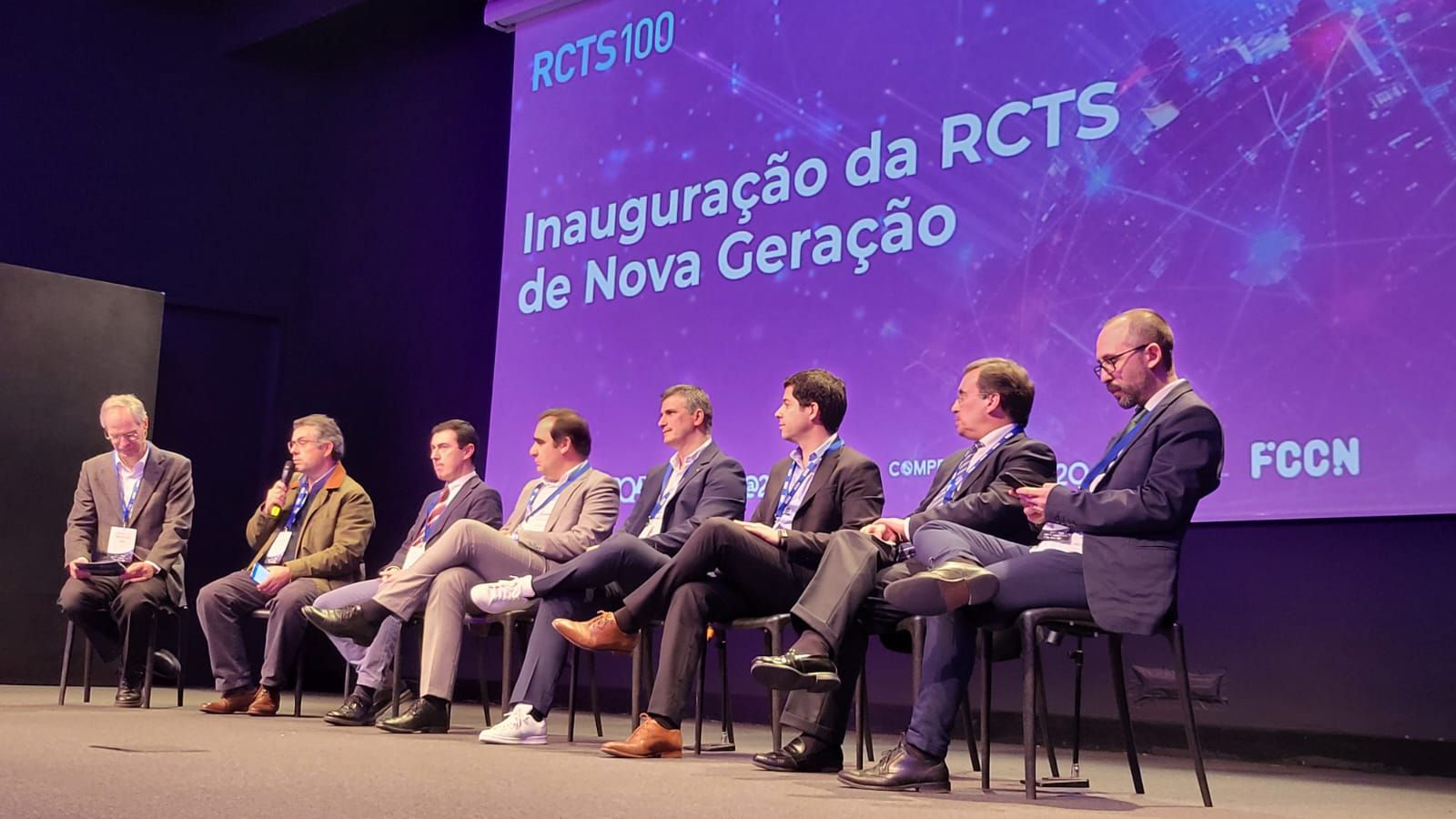FCT presented new generation RCTS

FCT, through the FCCN Unit, held the "Inauguration of the New Generation RCTS" session on February 16 at the Pavilion of Knowledge, which marked the conclusion of the RCTS100 project.
The RCTS100 project, which ends at the end of 2022, was launched in October 2017 to build a next-generation national education and research network, extending the optical fiber infrastructure of the Science, Technology and Society Network (RCTS) and ensuring its technological upgrade. At the same time, this project has enabled the internal networks of nine public higher education institutions to be upgraded and meet the challenge of the digital divide.
With a total investment of 17 million euros, 13 of which came from the European Regional Development Fund (ERDF), RCTS100 has set itself the ambitious goal of strengthening research, technological development and innovation.
A network with national impact
"We support not only the Portuguese higher education system and the national science and technology system, but also the connectivity of the Ministry of Education's schools and the organic units of the Ministry of Science, Technology and Higher Education," explains the director of the FCCN Unit's Network Services Area, Ana Pinto.
For this reason, the technological upgrade promoted by the RCTS100 project directly impacts various communities, from the higher education and science and technology system, but also the more administrative communities, linked to the ministry, and the non-higher education community.
Given this very broad coverage of the national education and research network, this project guarantees a technological update with national repercussions.
Response to digital divide
The impact of RCTS100 is not limited to activating new fiber optic infrastructure routes and upgrading the connections of several higher education institutions across the country. Thanks to this project, it was also possible to create new rings in the network to make it more scalable, both in terms of the number of services provided and increased redundancy and resilience to failures.
On the other hand, by standardizing access to fibre and activating an optical transmission system with national coverage, it has been possible to guarantee identical network access conditions, regardless of the entity's location. At the moment, RCTS's education and research entities can already access multiple services at a speed of 100Gbps, regardless of their geographical location. Responding to the challenge of the digital divide [asymmetries felt in different parts of the country with regard to the connectivity services available] is therefore another of the characteristics that make this project strategic for national scientific and technological development.
Over the last few months, the FCCN Unit has been sharing the testimonies of people in charge of several of these RCTS entities on its blog. "The connection of the Polytechnic of Guarda to the national education and research network at 100Gpbs is essential to meet our needs," says the coordinator of the Information Technology Center of the Polytechnic of Guarda, João Paulo Valbom. The same idea is shared by the president of the Polytechnic of Viseu, José dos Santos Costa: "The connection of the Polytechnic of Viseu to the national 100Gpbs teaching and research network is extremely important".
Find out more about RCTS100 here.